Sienna
November 11, 2021
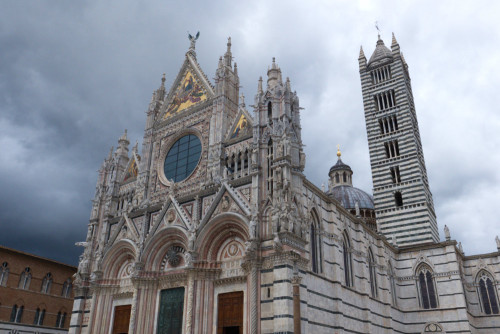
On The Beach
November 10, 2021
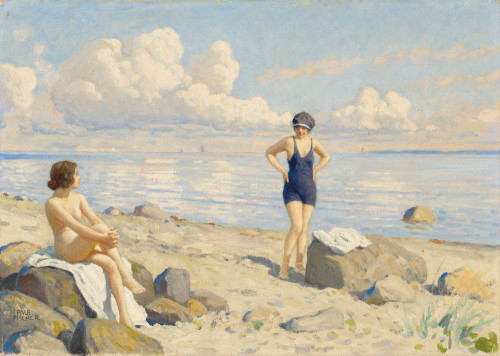
Orphan Street, Berlin
November 9, 2021
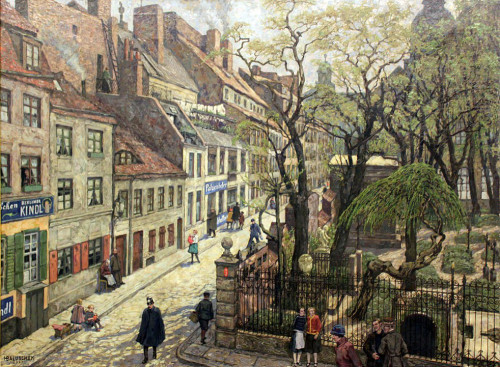
Hans Baluschek
1927
Bahnhofshalle
November 8, 2021

Hans Baluschek
1929
Corner Of The Big City
November 7, 2021
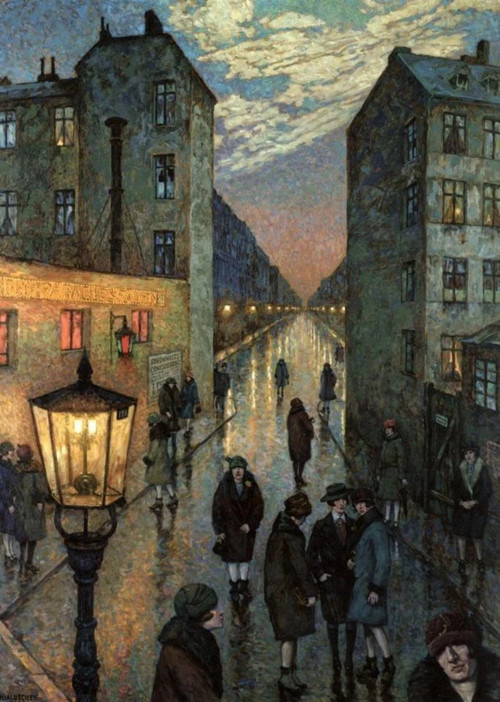
Medley
November 6, 2021
Close to You
Knowing When to Leave
Make It Easy on Yourself
Always Something There to Remind Me
I'll Never Fall in Love Again
Walk on By
Do You Know the Way to San Jose
Knowing When to Leave
Make It Easy on Yourself
Always Something There to Remind Me
I'll Never Fall in Love Again
Walk on By
Do You Know the Way to San Jose
Burt Bacharach and Hal David
Performed by The Carpenters
Recorded at Walter Reed Medical Center, November 8, 1970
Recorded at Walter Reed Medical Center, November 8, 1970
1970
Fallen Fruit
November 5, 2021
To the ones who came before us
All the golden ones who were lifted on a wing
We had no idea the dreams we had were far too big
Far too big
All the golden ones who were lifted on a wing
We had no idea the dreams we had were far too big
Far too big
Downtown
November 4, 2021
Climate Depression Is Real. And It Is Spreading Fast Among Our Youth
November 4, 2021
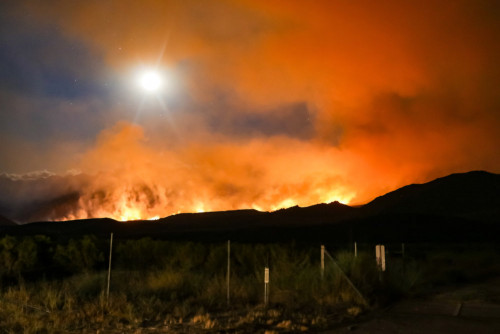
If you are anything like me, you think of the climate emergency a lot. Possibly every waking hour. Perhaps you experience the psychological tension caused by feeling trapped between the truth of climate and ecological destruction on the one hand and inaction from world leaders on the other. I feel this tension myself, and as a parent and climate activist, I see it affecting young people especially hard.
We are in a growing epidemic of serious climate depression among young people. This is a crisis that cannot be solved by “positive messaging” any more than climate breakdown itself. Ultimately, the only thing that will help the mental and physical safety of every age group, including the young, is meaningful action from world leaders.
Global heating is a vise tightening on nearly every aspect of our planet, our society, and our minds, driven by the production of fossil fuels. Each gram of fossil fuel burned intensifies every manifestation of climate and ecological breakdown; there is no negotiating with physics. Without emergency-mode climate action, things will break. Lots of things. Big things. Eventually, everything.
Gaia May Destroy Humans Before We Destroy The Earth
November 3, 2021
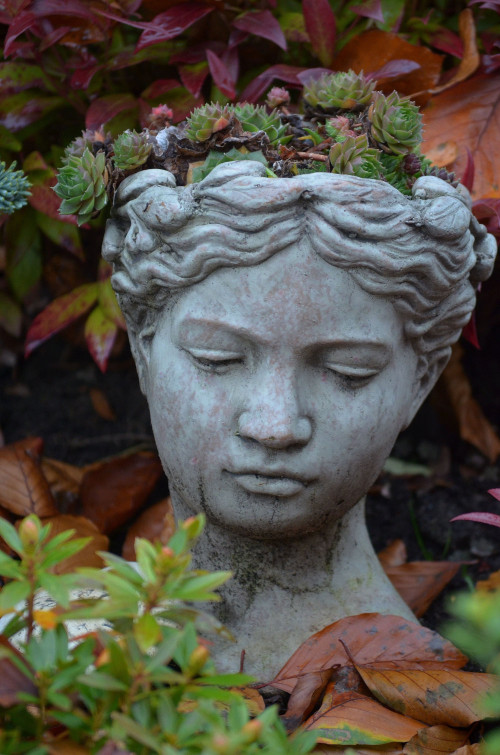
Almost 60 years ago, I suggested our planet self-regulated like a living organism. I called this the Gaia theory, and was later joined by biologist Lynn Margulis, who also espoused this idea. Both of us were roundly criticised by scientists in academia. I was an outsider, an independent scientist, and the mainstream view then was the neo-Darwinist one that life adapts to the environment, not that the relationship also works in the other direction, as we argued. In the years since, we have seen just how much life – especially human life – can affect the environment. Two genocidal acts – suffocation by greenhouse gases and the clearance of the rainforests – have caused changes on a scale not seen in millions of years.
For billions of years the Earth’s surface temperature has been determined mainly by the radiant heat coming from the sun. This energy increased over time because it is the nature of stars like the sun to increase their heat output as they grow older. But temperatures on Earth remained relatively stable thanks to Gaia: forests, oceans and other elements in the the Earth’s regulating system, which kept the surface temperature fairly constant and near optimal for life.
For billions of years the Earth’s surface temperature has been determined mainly by the radiant heat coming from the sun. This energy increased over time because it is the nature of stars like the sun to increase their heat output as they grow older. But temperatures on Earth remained relatively stable thanks to Gaia: forests, oceans and other elements in the the Earth’s regulating system, which kept the surface temperature fairly constant and near optimal for life.
The global warming that concerns all of us, and which will be discussed this week in Glasgow, includes a great deal of extra heating that comes as a consequence of extracting and burning fossil fuels since about the middle of the 19th century. That releases methane, carbon dioxide and other gases into the atmosphere. They absorb radiant heat and stop it escaping from Earth. This is what causes global warming.
Warnings that once seemed like the doom scenarios of science fiction are now coming to pass. We are entering into a heat age in which the temperature and sea levels will be rising decade by decade until the world becomes unrecognisable. We could also be in for more surprises. Nature is non-linear and unpredictable, never more than at a time of transition.
My fellow humans must learn to live in partnership with the Earth, otherwise the rest of creation will, as part of Gaia, unconsciously move the Earth to a new state in which humans may no longer be welcome. The virus, Covid-19, may well have been one negative feedback. Gaia will try harder next time with something even nastier.
Travelling Carnival, Santa Fe
November 2, 2021
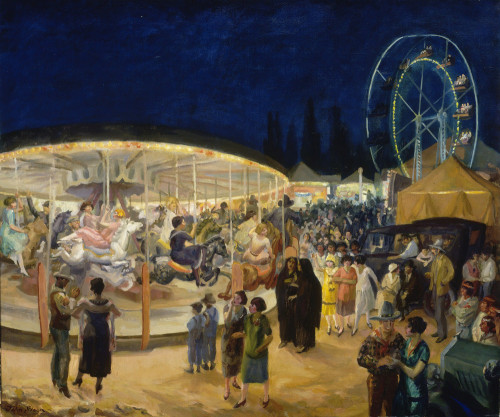
The Girl I Left Behind Me
November 1, 2021
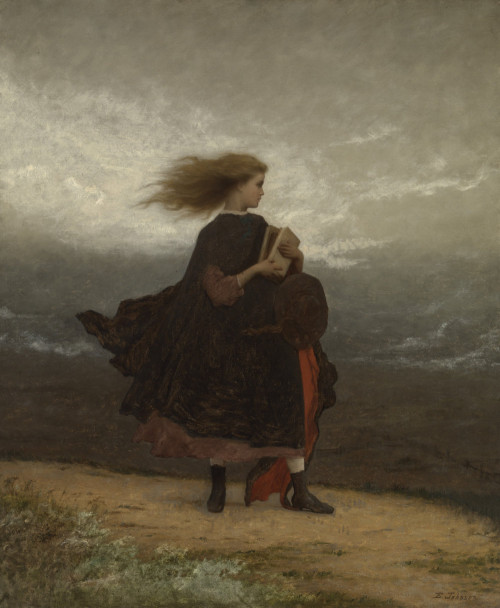
A Madonna
October 31, 2021

Automat
October 30, 2021

Midnight Mass
October 29, 2021
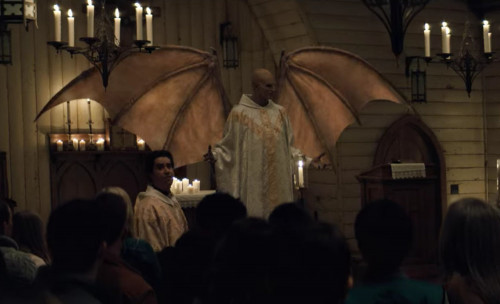
When faced with the reality of religious violence, the instinct of many Americans is to unquestioningly defend the notion of “good” religion. The Ku Klux Klan isn’t really Christian, we might tell ourselves. We might take comfort in the idea that the white Catholics and evangelicals who joined others in storming the U.S. Capitol weren’t good Christians. But in doing so, we risk ignoring the crimes committed every day in the name of faith. Religious people would do well to reckon with the complicity of their traditions and institutions in the sins of the world. After all, as scholars have shown, the KKK and Christian nationalists, too, think of themselves and their works as good and religious.
Writing on clerical sex abuse, the historian Robert Orsi insists that scholars must recognize “how religion is actually lived in everyday life, with its intimate cruelties, its petty as well as profound humiliations, its sadism and its masochism, its abuses of power, and its impulses to destroy and dominate.”
Lose Yourself
October 28, 2021

So much of our time is spent in self-focused ways. What happens if I do this? Or that? Doubt. Fear. Self-judgement. The judgement of others against ourselves. Planning. Scheming. It’s a whole lot of I, I, and I. You get the point.
Yet there’s a paradox: all of this self-focus is not very good for ourselves. Studies show that self-absorption is associated with clinical depression, personality disorders, and anxiety.
On the other hand, releasing from such a tight attachment to one’s self is a hallmark of flow, or that highly sought after state of being fully in the zone. Losing oneself is also the goal of most spiritual disciplines. (And athletic and creative ones, too.) The more you forget about yourself, the better you’ll feel, the better you’ll do, and the better you’ll be.
Unfortunately, the current ethos promotes self absorption. Examples include social media; the supposed importance of building a “personal brand”; or the self-improvement and self-esteem movements. More than ever, it seems, we’re being sold the idea of a separate self. This is a trap. And while there are a handful of ways out, I want to briefly explore two of the most dependable ones.
More than 2,000 years ago, in his Aristotle wrote that integral to a meaningful life is striving for arête, or what we might today call excellence or mastery. Aristotle pointed out, however, that achieving arête — be it by throwing oneself fully into a work of art, intellect, or athletics — is not always pleasant: “A virtuous life,” he wrote, “requires exertion, and does not consist in amusement.” But he also wrote that it is in such virtuous acts — making ourselves vulnerable and giving something our all — that we lose ourselves.
Centuries later, in his wildly popular Drive, a book that at its core is about what makes people tick, author Daniel Pink makes a similar case: “Mastery,” writes Pink, “is pain.” Yet, like Aristotle, Pink also argues that mastery is meaningful, that the benefits of taking on a challenge out of one’s own volition and losing oneself in an activity are immense.
For a study published in the Journal of Personality and Social Psychology, psychologist Carol Ryff surveyed more than 300 men and women, in order to identify correlates of well-being. She found that people who had “a feeling of continued development,” and saw themselves as “growing and expanding” were more likely to score high on assessments of life satisfaction and self-esteem than those who did not. Other research shows that when people throw themselves into an activity for the sake of the activity itself — and not for some sort of external reward, like money or fame or Instagram followers — they tend to report long-term well-being and fulfillment.
Attempting to master a craft may seem inherently selfish, but that’s not the case. In interviews with over 100 highly productive scientists, artists, and other creative types, the psychologist Mihaly Csikszentmihalyi discovered that many found meaning in their lives precisely because they lost themselves in their pursuit, or because they turned themselves over to it. He coined this “vital engagement,” or a relationship to an activity that manifests when one becomes fully absorbed in it. Meaning, Csikszentmihalyi writes, “derives from the connection of the individual to a tradition, enterprise, and community of practice that lie beyond the self.”
The specific craft need not matter. For some it may be running, for others sculpting, cooking, or playing the cello. What does matter is that you respect and honor the traditions of the craft, pursue long-term progress in it, and participate not for the sake of raising yourself up (i.e., an ego boost) but for the sake of transcending the very notion of your “self” altogether. You want to express yourself in the work and lose yourself in the work at the same time.
The specific craft need not matter. For some it may be running, for others sculpting, cooking, or playing the cello. What does matter is that you respect and honor the traditions of the craft, pursue long-term progress in it, and participate not for the sake of raising yourself up (i.e., an ego boost) but for the sake of transcending the very notion of your “self” altogether. You want to express yourself in the work and lose yourself in the work at the same time.
Though some may say that pursuing this kind of mastery is self-serving, or worse, selfish, I’d argue otherwise. I’ve never met someone who is in pursuit of mastery, who pays close attention to their craft and cares deeply about it, who isn’t a good person. Plus, whatever they create tends to end up helping lots of other people anyways.
Angel Flying Too Close To The Ground
October 27, 2021
If you had not have fallen
Then I would not have found you
Angel flying too close to the ground!
And I patched up your broken wing
And hung around a while,
Tried to keep your spirits up
And your fever down.
I knew someday that you would fly away
For love's the greatest healer to be found.
So leave me if you need to,
I will still remember
Angel flying too close to the ground!
Then I would not have found you
Angel flying too close to the ground!
And I patched up your broken wing
And hung around a while,
Tried to keep your spirits up
And your fever down.
I knew someday that you would fly away
For love's the greatest healer to be found.
So leave me if you need to,
I will still remember
Angel flying too close to the ground!
Charity
October 26, 2021

Sancta Lilias
October 25, 2021

If Necessary
October 24, 2021

Preach the Gospel every day. If necessary, use words.
Francesco di Pietro di Bernardone, St. Francis of Assisi
Painting by unknown artist from https://www.britannica.com/biography/Saint-Francis-of-Assisi